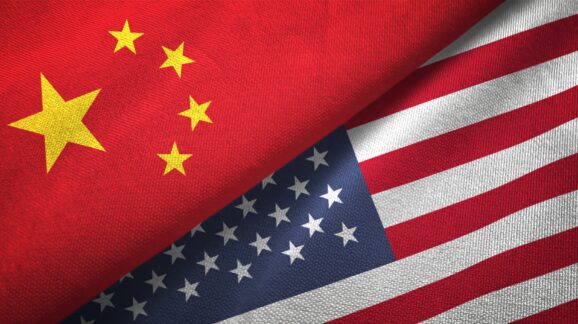Trump proposes 60 percent China tariff

Photo Credit: Getty
Donald Trump recently pledged to enact a 60 percent tariff against China if he becomes president again. His latest comments indicate, “Maybe it’s going to be more than that.”
Everyone agrees that China is a bad-faith actor on trade. The question is what to do about it.
Former President Trump’s answer during his term was tariffs. He imposed four rounds of increasing tariffs against Chinese products during his term, topping out at 25 percent, plus an attempted Phase One trade agreement.
The strategy failed. Beijing did not institute a single substantive reform.
In fact, the tariffs were a double failure. Not only did China not reform anything, but the tariffs are harming the US economy to this day. The tariffs, which began in 2018, are still costing the average American household more than $1,500 per year. This will continue for as long as the tariffs stay in effect — something the Biden administration should keep in mind.
Usually, when you try something four times and it fails four times, you switch to a different strategy. Trump is instead doubling down, literally. His proposed 60 percent tariff on Chinese goods would more than double the 25 percent top rate he imposed while in office.
A 60 percent China tariff is one campaign promise Trump could keep if re-elected. This is because back in the 1960s and 1970s, Congress delegated some of its tariff-making authority away to the president in order to expedite some then-needed trade policies. Those provisions were rarely used since. Trump’s team dug them up and used them to enact the China tariffs, as well as steel and aluminum tariffs, on dubious grounds.
Now Congress needs to step up. It is not enough just to repeal the self-harming tariffs already on the books. Congress needs to prevent further abuses and repeal those decades-old provisions (see my paper on how to do so).
As I always say, institutions matter. The balance of powers is tilted too far towards the executive branch. A healthier institutional balance with a more assertive Congress and a less deferential judiciary would have prevented America’s current tariff problems in the first place. It would also prevent the specter of further tariffs.
The Constitution gives all of the federal government’s taxing power to Congress, and none to the president. No president should be able to abuse tariff-making authority they should not have. Congress’ negligence is harming both America’s domestic economy and its foreign policy. It is not too late for Congress to do its job.
For a successful approach to trade policy, see Iain Murray’s and my paper “Traders of the Lost Ark,” and Kent Lassman’s trade chapter in the Heritage Foundation’s Project 2025 book (scroll down past former Trump adviser Peter Navarro’s essay to pages 796-823).